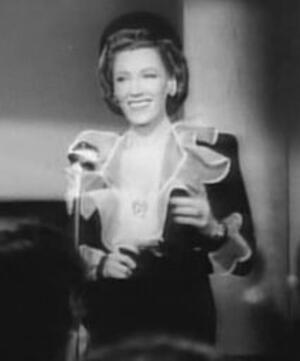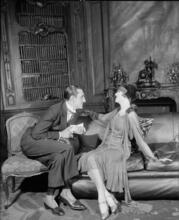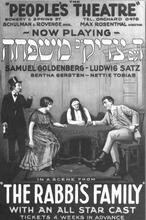Helen Menken
Actress and producer Helen Menken made her Broadway debut in 1917. She took on a variety of roles throughout the 1920s and 1930s and became known for playing a lesbian in The Captive, for which she was arrested during a performance, and her role as Elizabeth I inMary of Scotland. In 1933 she began producing plays. Her most important and enduring production was the 1942–1946 Stage Door Canteen through the American Theater Wing, in which Broadway stars performed for service people as well as cooking and waiting tables. She was a co-founder of the American Shakespeare Festival Theater and president of the American Theater Wing and served as vice president of both the Institute for the Crippled and Disabled and the Society for the Facially Disfigured.
Article
One of the finest actors of her day, as well as a producer and a philanthropist, Helen Menken devoted her entire life to the American theater. Born on December 12, 1901, to artist Frederick William Menken and Katherine (Moden) in New York City, Menken began her stage career at age three in a production of Humpty Dumpty. Within two years, she was playing Peaseblossom in Shakespeare’s A Midsummer Night’s Dream.
Menken continued to perform in plays and musicals throughout her childhood and adolescence. She appeared around the country in stock productions. By 1916, she had acquired enough experience to land the role of Blanche Amory opposite the great John Drew in Major Pendennis. Two years later, her success was assured by her widely hailed performance as Miss Fairchild in Three Wise Fools. Menken did not limit herself to crowd-pleasing roles in popular favorites. She was a serious actor who challenged herself throughout her life.
Through the mid-1920s, she presented a string of powerful performances in challenging dramas, undertaking such parts as The Rat Wife in Little Eyolf and Emila Marty in The Makropoulos Secret. In 1926, at the height of her career, she engaged in a controversial and daring role, the lesbian Irene De Montcel in The Captive. The New York police raided a performance, arrested Menken, and closed down the production. Shortly thereafter, Menken went to London and was a hit in a West End production of one of her outstanding Broadway successes, Seventh Heaven. Returning to New York, she played Dorinda in The Beaux’ Stratagem in 1928. In 1931, she played a season of Shakespeare, performing the roles of Portia in The Merchant of Venice, Ophelia in Hamlet, and Calpurnia in Julius Caesar. She continued to act for the rest of her life. Her last important role was in 1933, when she played Queen Elizabeth I opposite Helen Hayes in the title role of Mary of Scotland.
That same year, Menken began her career as a producer with Saint Wench, in which she also starred. Her greatest producing effort was the American Theater Wing’s Stage Door Canteen, which operated from 1942 to 1946. This was Broadway’s contribution to the war effort. In Stage Door Canteen, the stars not only performed for servicemen and servicewomen, but also cooked and waited tables for them in a wonderfully deglamorized setting.
Menken had three marriages, including a stormy one-year union with Humphrey Bogart. She was a co-founder and trustee of the American Shakespeare Festival Theater and Academy, a vice president of the Institute for the Crippled and Disabled, and a co-founder and vice president of the Society for the Facially Disfigured.
In the latter part of her career, she devoted most of her energy to the American Theater Wing. Menken was its president and worked tirelessly on behalf of its many programs until her death on March 28, 1966. She was awarded a posthumous Tony Award that year.
Bordman, Gerald. The Oxford Companion to the American Theatre. 2d ed. (1992).
Rigdon, Walter, ed. The Biographical Encyclopedia and Who’s Who of the American Theatre (1966).
Obituary. NYTimes, March 28, 1966, 33:2.
Stevenson, Isabelle, ed. The Tony Award (1987).
UJE.
WWWIA 4.





